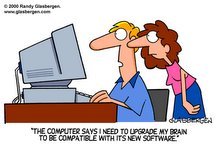SaaS platforms and marketplaces will begin to proliferate, becoming a significant channel opportunity for vendors, as well as a key means by which users will gain access to SaaS solution capabilities. During the past several years, SaaS marketplaces and platforms have evolved well beyond their initial capabilities, offering customisation, integration, data pipes for BI or data sharing, data storage, content management, workflow, development tools and APIs. Ecosystems have formed to enrich the value of their offerings through the synergy of functionality brought together on these platforms. SaaS platforms now express a wide range of capabilities that are driven by the business model of the ecosystem and the needs and characteristics of the marketplaces they enable.
SaaS is becoming an international phenomenon, driven by both local demand as well as large multi-nationals who are adopting SaaS business solutions on a global basis. While US SaaS adoption is clearly going “mainstream”, Europe and Asia are only now beginning to experience the steep adoption ramp that the US has witnessed over the past two years. Europe is beginning to go through a very similar adoption profile that the US has – albeit with an 18 month lag. A very strong European growth can be anticipated for US-based SaaS giants aggressively expanding into this region as well as regional and country-specific players. Whereas average US market growth rates will likely slow into the 35-40 percent range in 2008, European market growth rates should exceed 60-70 percent next year.
SaaS merger & acquisition activity will explode. No doubt a serious feeding frenzy is about to unfold and it could be anticipated that a large number of venture-backed start-ups and emerging SaaS companies in the $5 million - $20 million range would be put up for sale over the next 12-18 months – and acquired by either SaaS pure-plays, ISVs hungry to enter the SaaS fray or on-shore & off-shore IT services and BPO providers who are eager to leverage a SaaS model. The upcoming year is an important one where next-generation horizontal and vertical franchises will be cemented.
Traditional on-premise application ISVs will earnestly begin to fight back. Approximately 15-20 percent of ISVs have already either begun new skunk works initiatives or gained access to SaaS assets and development experience through M&A activity. However, over the next 12-24 months, this number is anticipated to rise dramatically, as a tougher economic climate will only exacerbate an already challenged on-premise and traditional perpetual license model. To be successful, ISVs will need to fully understand the journey that they will be on across five key dimensions – economic, technological, operational, organisational and cultural – as well as take advantage of the many best practices available based on the hard-fought experience of early adopters.
SaaS development platforms will evolve and 2008 will see explosive growth in the adoption and use of SaaS-based software development platforms and services, beginning with significant growth in the use of vendor-specific, application-specific, and marketplace/ecosystem-specific development platforms and services. Wide availability of open, standardised tools and technologies in subscription-based, on-demand environments will help streamline and reduce the costs of software development and customisation. It will also foster use and growth of services-oriented architecture development strategies.
By 2012, 30 percent or more of all new business software will be deployed and delivered as SaaS. 15 percent of SaaS solution revenue will be accessed through SaaS marketplaces. At least 75 percent of the revenue generated by SaaS marketplaces will be driven by five or fewer SaaS platform providers.
By YE2008, greater than 55 percent of North American-based businesses will have deployed at least one SaaS application, with Western European close behind at greater than 40 percent.
60 percent or more of SaaS firms funded prior to 2005 will either be acquired or go out of business by 2010. By 2012, all bets are off as it concerns traditional on-premise licensing schemas.
By 2010, 40 percent of traditional on-premise application ISVs will bring to market SaaS solution offerings, either via acquisition, development of new single-instance multi-tenant applications, or through virtualised (multi-tenant) versions of their traditional on-premise offerings. Less than half of the ISVs in transition will actually succeed.
By YE2008, the number of user enterprises taking advantage of SaaS-based software development platforms, services and offerings will number in the tens of millions worldwide.
Friday, April 11, 2008
Subscribe to:
Post Comments (Atom)



No comments:
Post a Comment